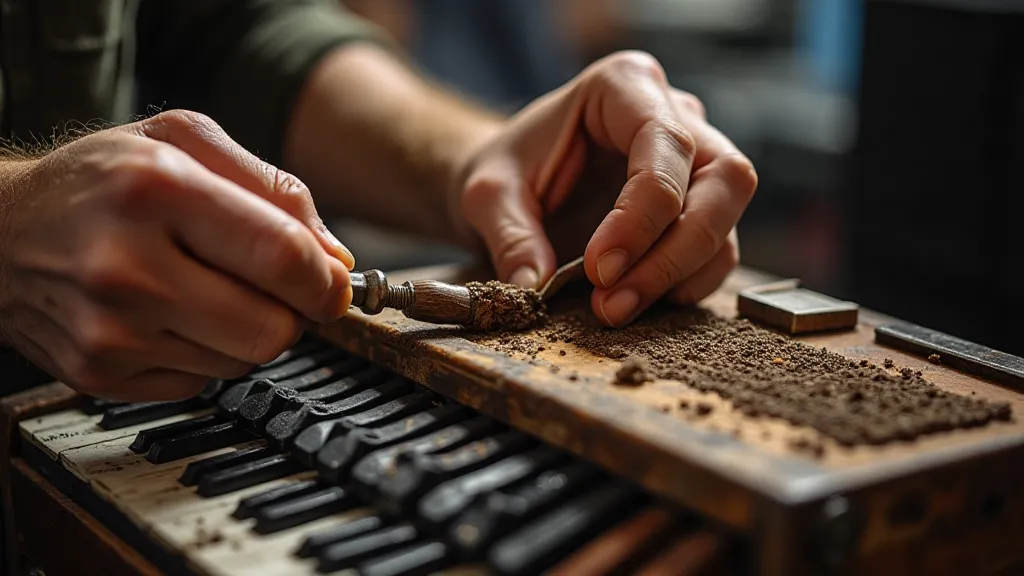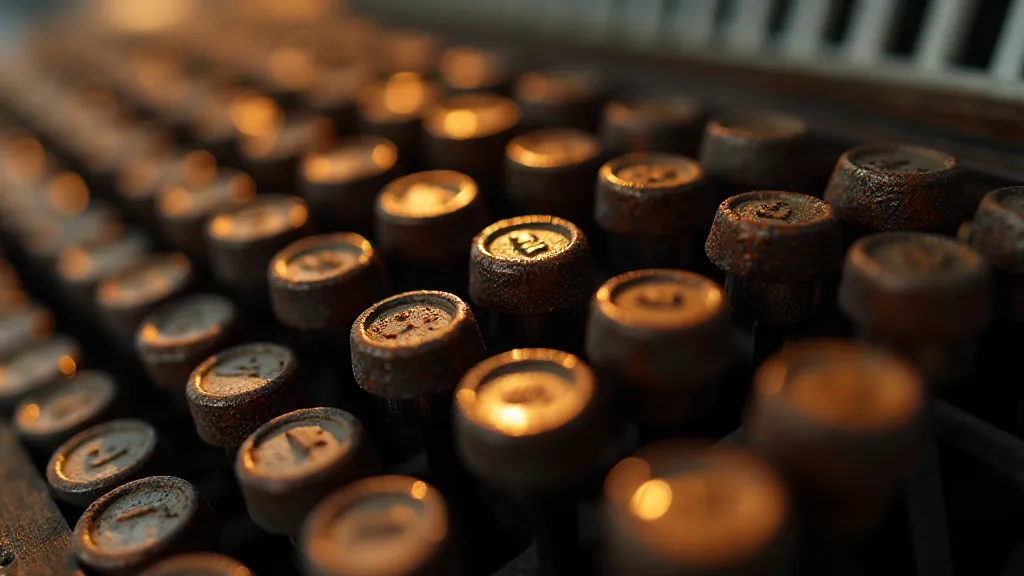The Grammarian's Glass: Discerning Precision in Prose
There's a peculiar resonance to old things. Not just the echo of history clinging to their surfaces, but a palpable sense of care, intention, and a forgotten beauty. I'm thinking, specifically, of antique accordions. Their bellows, like the breath of a storyteller, hold whispers of dances, celebrations, and countless melodies. Their keys, worn smooth by loving hands, beckon with a silent promise of connection. And for me, they're unexpectedly linked to the art of writing – to the rigorous, yet rewarding, pursuit of precision in prose.
My grandfather, a taciturn man of few words, possessed a magnificent Hohner Monarch accordion. It wasn’t just an instrument; it was a testament to a bygone era of craftsmanship. He’s the one who taught me about the value of meticulousness. He wouldn’t just repair the bellows; he'd painstakingly re-glue every fold, ensuring absolute airtightness. He's the one who instilled in me a deep respect for detail. He’s also the one who, with a slight smile, would tell me, "Every note matters. Just like every word."

The Grammar of Accordions: An Analogy for Writing
Think about it: an accordion's sound isn’t just a random collection of notes. It’s a carefully constructed sequence, dictated by the interplay of keys, buttons, and the controlled expansion and contraction of the bellows. The slightest misalignment, a loose screw, a torn bellows – all can disrupt the harmony. The result? A muddy, unsatisfying sound. It’s remarkably similar to poorly constructed sentences, riddled with grammatical errors, stylistic inconsistencies, and a general lack of clarity.
Just as an accordion maker obsessively ensures the airtight seal of each bellows, a writer must meticulously examine the structure of their sentences. Proper grammar isn't about adhering to arbitrary rules; it's about ensuring that your meaning shines through with the utmost clarity. It’s about guiding the reader effortlessly through your narrative, much like the bellows guides the airflow to create a vibrant musical tone.
Beyond the Basics: Stylistic Choices and Voice
But the precision required goes beyond simply avoiding grammatical errors. Consider the stylistic choices an accordion player makes – the subtle inflections, the deliberate pauses, the dynamics that shape the overall performance. These choices aren't dictated by the instrument itself; they're expressions of the musician's artistry, their unique voice. Similarly, a writer's stylistic choices – their vocabulary, their sentence structure, their tone – are what imbue their writing with personality and impact.
Think about the difference between a declarative sentence ("The rain fell steadily.") and a more evocative one ("A relentless curtain of rain descended, blurring the edges of the world."). Both convey the same basic information, but the second sentence engages the reader on a deeper level, utilizing stronger verbs and a more figurative language.
This is where the "Grammarian’s Glass" comes in. It’s the act of looking at your writing with a critical, yet empathetic eye – analyzing not just the correctness of your grammar, but also the effectiveness of your stylistic choices. Is your word choice precise and impactful? Is your sentence structure varied and engaging? Does your tone align with the overall mood of your piece?
The Allure of Restoration: Repairing and Honing Your Craft
Restoring an antique accordion is a labor of love. It requires patience, attention to detail, and a deep understanding of the instrument's mechanics. It's about more than just replacing broken parts; it's about preserving its history, its character, its inherent beauty. The same holds true for writing. Sometimes, our writing needs a similar "restoration." It requires us to revisit our drafts, to identify areas that need improvement, and to carefully refine our prose.

This might involve cutting unnecessary words, rearranging sentences, or even rewriting entire paragraphs. It's a humbling process, but it's essential for honing your craft. Don't be afraid to be ruthless in your self-editing. Just as a skilled accordion repairer would replace a faulty reed to ensure a clean tone, a writer must be willing to discard words or phrases that detract from the overall impact of their writing.
The Resonance of Time: Appreciating Craftsmanship and Care
There's a quiet dignity that comes with owning and caring for something old. It’s a recognition of the skill and dedication that went into its creation, and a commitment to preserving that legacy for future generations. Similarly, when we strive for precision in our writing, we’re not just adhering to a set of rules; we're paying homage to the art of storytelling, honoring the legacy of countless writers who have come before us.
The value isn't solely in the final product – a beautifully restored accordion or a polished piece of writing – but in the journey itself. In the meticulous attention to detail, the unwavering commitment to excellence, the deep appreciation for the craft. The act of appreciating the details – whether it’s the intricacies of an accordion’s mechanism or the nuances of a sentence’s construction – enriches the experience, making the final result all the more rewarding.
Collecting, Connecting, and Carrying On
Many collectors of antique accordions aren’t just interested in the instruments themselves; they're fascinated by the stories they hold – the lives they're touched, the memories they evoke. The same is true for writers. Our words have the power to connect with readers, to inspire them, to move them. But that power is amplified when our writing is imbued with precision and care.

So, embrace the Grammarian’s Glass. Look critically at your writing. Strive for precision in your prose. And remember the lesson my grandfather taught me, and the wisdom held within the bellows of that old accordion: every word matters.





